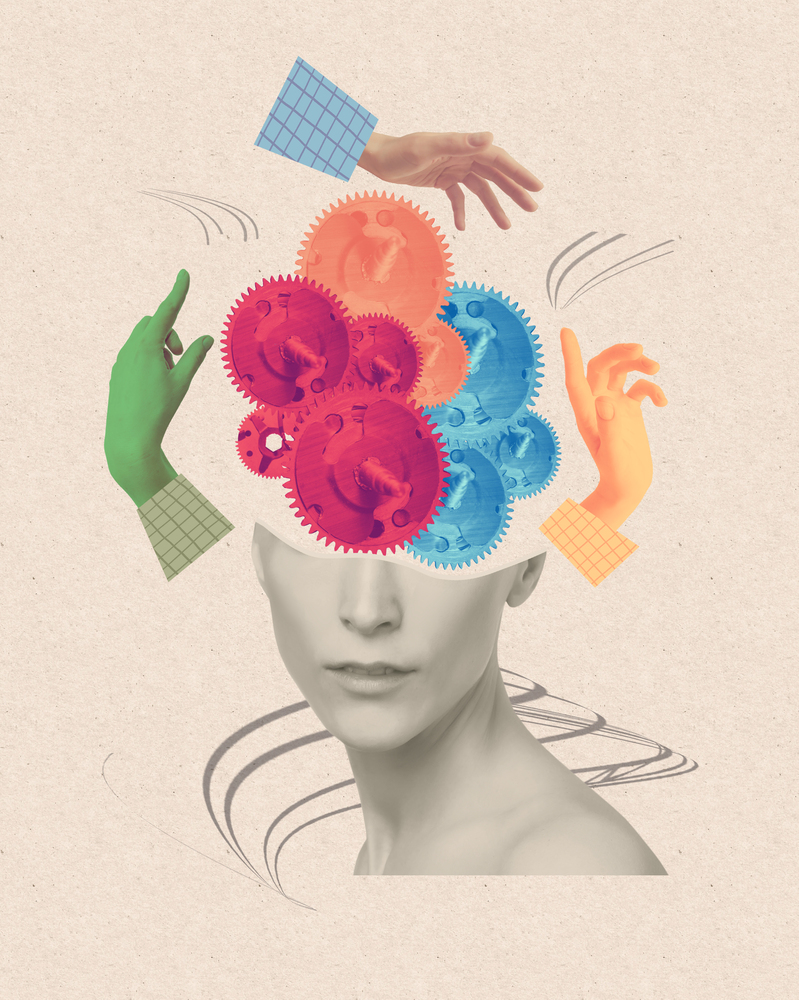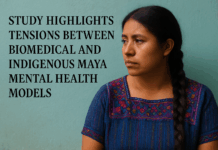As the demand for recovery-oriented mental health services grows, so does the need for a shared understanding of what “recovery” truly means.
A new study published in Social Science & Medicine represents one of the first international efforts to establish consensus among mental health professionals about the core components of recovery. Their goal is to investigate whether professionals align with the definitions developed by users and survivors, and to identify the key elements that should shape recovery-oriented services.
Within the psy-disciplines, recovery has often been narrowly defined in clinical terms, focused on symptom reduction and functional improvement. In contrast, personal recovery, grounded in service user and survivor movements, emphasizes agency, meaning, and quality of life. This misalignment can lead to practices that fail to meet the diverse needs of service users.
To address this, Georgina Guilera and colleagues from the University of Barcelona used a three-round Delphi method, engaging 78 recovery-oriented professionals across the six World Health Organization regions – Africa, Americas, South-East Asia, Europe, Eastern Mediterranean, and Western Pacific – to identify shared definitions, progress indicators, and factors that facilitate and hinder recovery.
Key findings include:
“Key indicators emphasized agency, empowerment, user safety, and informed decision-making. Facilitators included the promotion of self-determination, a holistic approach within services, and the integration of peer support. Social exclusion emerged as the most significant obstacle to recovery. This study provides an international consensus on the key elements of recovery in mental health from the perspective of recovery-oriented professionals, offering insights for implementing interventions, developing recovery-oriented services, and refining measurement instruments.”
















“Social exclusion emerged as the most significant obstacle to recovery.” This is an important sentence.
While a scientific apparatus can be applied to determine precisely how social exclusion impairs recovery, or how to combat social exclusion, it’s one of those things many can grasp more organically.
What kinds of things might lead to social exclusion or rejection?:
Systemic injustice—whether political, economic, social, or religious.
Labeling a person with a disease or disorder.
Sharing the latest juicy gossip—especially about a person who is commonly gossiped about (scapegoated).
Assuming the ability to be unaffected by gossip about someone—especially someone you don’t know (and will now never know, as the person’s character has already been effectively assassinated).
Assuming others equally enthralled with the gossip are also unaffected by it, failing to recognize how the person encountered the same rejection from others.
Failing to recognize the damage done to a person by those in their orbit who uniformly reject them, or, who accept them with reservation or merely graciously tolerate their presence (after which they all “compare notes” to assess whether any behavior was gossip worthy).
Ignoring the fact that no gossip carries the whole story.
Gaining social acceptance and enjoying a bonding experience and a feeling of empowerment derived from recruiting others to join in rejecting someone (or in treating them with guarded acceptance or dishonest harmony).
Believing every instance of rejection is a harmless isolated incident, thus failing to recognize how these incidents are cumulative and how they invite/cause more incidents to gossip about.
Thinking a person’s reaction to being (perhaps thoroughly) rejected is the problem.
Expecting recovery while imposing the same failed (loveless) logic and ill treatment.
Pretending not to know any better until scientific evidence definitively establishes it, until which time it’s best just to carry on as normal.
Report comment
So true.
Report comment
All my studies have revealed that an inclusive relationship in a safe environment are essential for recovery.
It has long been suspected that feelings of alienation are related to the development of psychosis but with no consensus on the source of this alienation. In fact, the identification of the source is not important as you are dealing with a feeling not a neurosis. The formation of an inclusive relationship by one person can relieve the feelings of alienation and start reversing the persons reaction to these.
Report comment
Thanks. I agree with your ideas about the importance of an inclusive relationship. Being included is healthful for sure (if it’s genuine inclusion), but knowing someone has your back—someone whose love is unconditional—is downright important.
Report comment
I use the term inclusive as it is opposite to alienating. I would further define using this dichotomania. So the relationship would be supportive rather than critical, accepting rather than judgemental, focused on making better rather than curing. An unconditional loving relationship is very important but I am opposed to therapists forming these with their patients as it complicates the relationship. Personally as a man I prefer working with men while enjoying my relationships with women outside of therapy.
Report comment
Can a therapist really dispense unconditional love to their clients in the first place?
Do they really even know their clients (outside of a scheduled “therapy” relationship)?
If unconditional love depends on someone getting paid for it, it’s not unconditional love in the first place. It’s clearly a conditional (monetary) transaction.
Report comment
As one with lived experience, I have seen both sides.I have been subject to all you describe in your original comment — the labeling, gosip, character assination etc , so I can also tell you that every time my partner became involved in my treatment it was only a matter of time before the relationship ended.
Report comment
It’s not uncommon for individuals placed in extended solitary confinement to become psychotic.
Report comment
As though mental health professionals have ever really believed in recovery
Report comment
Even crazier is them believing they alone know what ‘illness’ looks like.
Report comment
Sadly this research misses the central point of the original recovery model which is that recovery is defined by the patient themself.
Concepts like recovery and person centred care have already been fully co-opted and reduced to rhetorical window dressing while the same dehumanising attitudes and practices continue as usual.
Determining whether services are actually meeting patient needs and supporting patients to achieve their own definition of recovery would be more useful than a trying to form a consensus idea of recovery as defined by clinicians (with a single token lived experience contribution).
Report comment
Precisely! The client is the ONLY ONE who knows what they need to recover, or if “recovery” is even a meaningful goal or term for them. Clinicians would do best to shut up and listen to the CLIENTS’ “consensus” on what they consider to be “recovery.” They might learn a thing or two!
Report comment
Thank you! What I was trying to say, but we get so tired of saying it when it is a concept that seems so impossible for the industry to take in! So as usual we have more experts talking among themselves trying to define something when the people they claim to treat have all the knowledge they need. Studies like this are completely blinded by epistemic privilege – unable to recognise our ability to know or even speak.
Report comment
Incredibly egotistical the way most therapists think they know what “recovery” means for another individual.
Report comment
Defining “recovery” implicitly undermines another’s ability to define it for themselves, in their way and time
The solution: Avoid those who confuse imposition with support—especially when they’re paid to do it.
Why? Because belief shapes recovery and doubt distorts it.
Report comment
Professional settings intentionally blur relational ethics—all in the name of “recovery”.
Report comment
—as opposed to traditional ethics.
Report comment
Agree with all the above Birdsong, so much damage has been done by imposing clinical definitions and marginalising our knowledge.
These attitudes deny relationship and reinforce the power imbalance which violates our dignity and personhood and prevents recovery.
Belief and doubt are so powerful to recovery, as you say, and silencing our own meanings only disempowers us more.
Report comment
Thank you, Freya.
It’s disturbing how easily anyone—client or clinician—can get pulled into a system that feeds on negative definitions and power imbalances, often without realizing that the very “clinical” attitudes meant to treat “illness” are the ones actually generating it.
The most disturbing thing to me is how (most) therapists seem to envision themselves as intellectually sophisticated and emotionally integrated, superior to those supposedly less “well-educated”, when their position reveals the opposite. In other words, that what drives people to become therapists, I believe, is their underlying fear of ambiguity, and a career in “therapy” comes with its VERY OWN SET of seductively medicalized definitions and techniques that give the illusion of mastery that in my estimation has the majority of therapists foolishly believing they themselves represent the embodiment of “wellness”.
I see it as the culmination of a process that begins with young, impressionable individuals, too eager to trust those who promise careers of “clinical” nirvana, not realizing they’re being led into a system where power, not wisdom, is the most potent attraction. And by the time they realize, that is IF they EVER realize, the depth of the misconception, they’ve become too entrenched in the system to question it.
I doubt no one ever tells them their own fear of ambiguity is at the bottom of their striving, that their childish wish to be seen as someone’s psychological Superman or Wonder Woman is often the tell-tale sign of emotional immaturity, a “sickness” all its own.
But all this does is point to their own unconscious refusal to sit with uncertainty, to allow meaning to emerge—rather than impose it.
Report comment
CORRECTION:
I doubt ANYONE ever tells them their own fear of ambiguity is the driving force behind their incessant need to flippantly define and control others, that their childish desire to operate as someone’s psychological Superman or Wonder Woman is often the TELL-TALE SIGN of emotional immaturity —a “sickness” all its own.
IMHO.
Report comment
… a sickness that cloaks itself in credentials, thrives in fluorescent-lit offices, and cruelly calls its own projections “disorders”—a sickness that seeks to bury irreverent truth.
It’s epistemic violence in action which, by golly, inevitably makes “recovery” the last thing on their minds.
IMHO.
Report comment
Beautifully put! I agree these attitudes and systems which they support, create so-called “mental illness”.
Fear of ambiguity is a very perceptive diagnosis
Report comment
Thank you, Freya 🙂
It’s aways been my gut feeling that those who subscribe to “clinical wisdom” are the least wise among us.
They’ve clearly majored in epistemic arrogance.
I kept hoping the professionals would exhibit some true wisdom before finally coming to the sad conclusion that the majority of them didn’t have much to begin with, which I believe is precisely what drove them to become therapists in the first place.
Report comment
After working in a hospital for three years I came to the conclusion that they were all suffering from a group neurosis. The problem was that they didn’t understand mental illness and as a result they were deep down terrified of becoming mentally ill. As a group they then came up with ” there must be something terribly wrong with the patients or they would also be liable of becoming ill” as a solution. Which explains why they are always belittling and labeling there patents. They are in fact treating their own issues.
Report comment
By “they,” I assume you mean the staff/doctors providing “treatment” at the hospital? I agree, the “diagnoses” provide an easy way for providers to project their fears onto unsuspecting patients/clients, so they can feel they are “stomping out” depression or whatever else they are avoiding in themselves. Not all providers work this way (clearly, you worked there and did not engage in that behavior), but the DSM diagnostic process makes it very tempting to go that route.
Report comment
You are correct. Apologizes for my linguistic ambiguity.
For more on my insights from working there see my Mad in the UK blog.
https://www.madintheuk.com/2024/08/rethinking-schizophrenia/
Report comment
“They are in fact treating their own issues.”
Totally. Psychiatric labeling is an extreme form of projection that’s done to make the pros feel in control of emotions that terrify them.
IMHO.
Report comment
… while mistakenly believing wearing the clinical gaze dissolves their own vulnerabilities when in fact it just displaces it.
The therapy profession, by and large, appeals to those whose neurosis demands the illusion of coherence in the form of “diagnoses” and “treatments”, manifestations of a very neurotic impulse to name and control, to those who are incapable of surrendering to the unknowable—the tell-tale sign of hardcore neurosis.
IMHO.
Report comment
CORRECTIONS:
… while mistakenly believing wearing the clinical gaze dissolves their own insecurities when in fact it merely displaces them.
The therapy profession, by and large, appeals to those whose neurosis demands the illusion of coherence—“diagnoses”, “treatments” and other manifestations of the compulsion to name and control. It draws those incapable of surrendering to the unknowable—the tell-tale sign of their own HARDCORE NEUROSIS.
IMHO.
Report comment
Loving the collective wisdom here! So funny how many “patients’” have similar views about clinicians lack of insight !
Report comment
“Diagnosing” is (usually) the pros’ way of distancing themselves from relating to intolerable emotions they’re trained to disavow. It’s part of an elaborate defense mechanism designed to sustain their illusion of emotional immunity, as well as project the false imagine of emotional objectivity.
Living through the DSM is the grown-up’s way of acting out, only this time around it’s done with an emotionally sterile pseudo-polish—and any notion of “recovery” would put an end to their cherished play-acting.
IMHO.
Report comment
TRUTH: Most therapists see “recovery” as a threat, not a goal.
Report comment
Outcome measuring tools of the Duncan & Miller type …..
Report comment
Fuck the educated fool’s notion of “recovery”, those whose cognitive elitism has them believing functionality is the highest virtue.
The “therapeutic” culture we live in is obsessed with mastery. It teaches us to forget how to live with mystery through reverence.
Peace and healing await those who learn not to fear the wilds of life’s inherent ambiguity—the nature of reality itself.
Report comment